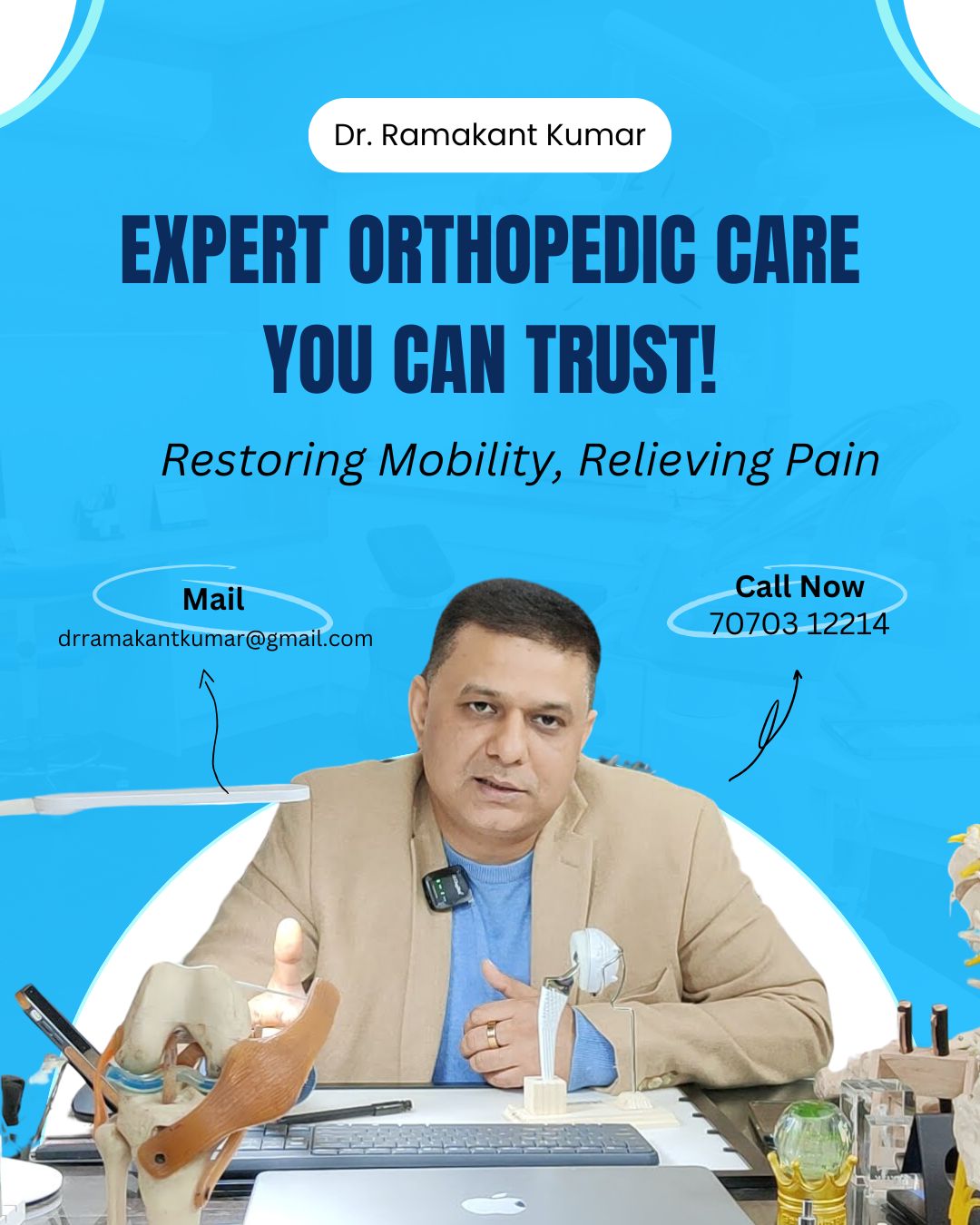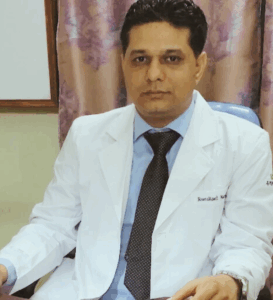Neck arthritis, also known as cervical spondylosis, is a degenerative condition that affects the joints and discs in the neck.
It can cause pain, stiffness, and reduced mobility, making everyday activities challenging. However, there are various treatment options available to manage Stages of Osteoarthritis in Neck and improve quality of life.
From conservative approaches such as medications and physical therapy to more advanced interventions like surgery, a tailored treatment plan can be designed to address the specific needs and symptoms of each individual.
By understanding the available options, individuals can decide accordingly What Helps with Neck Arthritis.
Even the Best Orthopedic Doctor in Patna and healthcare professionals can also help you to find the most effective strategies to alleviate pain, improve function, and regain their mobility.
But How Long Does Neck Arthritis Last? Or Is Neck Arthritis Permanent? Well it could only be answered when you are aware of the reasons of neck arthritis.
Contents
Causes of Neck Arthritis
Like What Are the First Signs of Arthritis in The Neck?
Neck arthritis can lead to pain, stiffness, and limited range of motion in the neck. Several factors can contribute to the development of neck arthritis:
Age: The most common cause of neck arthritis is aging. As you get older, the cartilage in the joints of the neck wears down, leading to degeneration and arthritis.
Wear and tear: Over time, the repetitive stress and strain on the neck joints can contribute to the development of arthritis. Poor posture, incorrect ergonomics, and activities that involve repeated neck movements or heavy lifting may accelerate this process.
Spinal disc degeneration: The discs between the vertebrae in the neck can degenerate with age, leading to a loss of cushioning and increased stress on the joints. This can contribute to the development of arthritis.
Previous injuries: Past neck injuries, such as whiplash from car accidents or sports-related injuries, can increase the risk of developing arthritis in the neck.
Genetics: There may be a genetic predisposition to developing neck arthritis. If you have a family history of arthritis or other joint conditions, you may be at a higher risk.
Lifestyle factors: Certain lifestyle factors can contribute to the development or progression of neck arthritis. These include smoking, poor nutrition, obesity, and lack of exercise.
It’s worth noting that while these factors can increase the likelihood of developing neck arthritis, they don’t guarantee its occurrence.
Additionally, other factors not mentioned like Neck Arthritis Headache Symptoms here may also play a role in individual cases.
If you suspect you have neck arthritis or are experiencing neck pain, it’s advisable to consult a healthcare professional for a proper diagnosis and appropriate How to Cure Cervical Spondylosis Permanently treatment options.
What Is the Treatment for Cervical Arthritis?
What Is Best Treatment for Neck Arthritis? While there is no cure for arthritis, How to Treat Arthritis in the Neck Naturally can help manage the symptoms and improve the quality of life for individuals with neck arthritis.
Here are some common treatment approaches for Can Neck Arthritis Get Better:
#1. Medications
Over-the-counter pain relievers, such as acetaminophen or nonsteroidal anti-inflammatory drugs (NSAIDs) like ibuprofen, may help reduce pain and inflammation. In some cases, your doctor may prescribe stronger medications or muscle relaxants.
#2. Physical Therapy
A physical therapist can guide you through Neck Arthritis Exercises and stretches that improve neck strength, flexibility, and range of motion. They may also use techniques such as heat or cold therapy, ultrasound, or electrical stimulation to alleviate pain and promote healing.
#3. Neck Immobilization
Wearing a cervical collar or neck brace can help limit the movement of the neck, allowing the muscles and tissues to rest and heal. However, prolonged immobilization is not typically recommended, as it can lead to muscle weakening and stiffness.
#4. Heat and Cold Therapy
Applying heat, such as a warm towel or heating pad, can help relax tense muscles and relieve pain. Cold therapy, such as an ice pack, can reduce inflammation and numb the area. Alternate between the two for best results.
#5. Exercise and Lifestyle Modifications
Engaging in regular low-impact exercises, such as walking or swimming, can help strengthen the neck and improve overall physical fitness. Maintaining a healthy weight and practicing good posture are also important to reduce stress on the neck.
#6. Transcutaneous Electrical Nerve Stimulation (TENS)
This therapy involves the use of a TENS unit, which delivers low-level electrical impulses to the affected area, helping to reduce pain and promote relaxation.
#7. Injections
In some cases, corticosteroid injections may be administered directly into the affected joints or muscles to provide short-term pain relief and decrease inflammation. However, these injections are typically used sparingly due to potential side effects.
#8. Surgery
When conservative treatments fail to provide relief, surgery may be considered. Surgical options include cervical fusion (joining vertebrae together) or cervical disc replacement.
Other than this you can also use Neck Arthritis Pillow a specialized pillow designed to provide support and alleviate symptoms associated with neck arthritis.
Thus it’s important to consult with a healthcare professional, such as a primary care physician or an orthopedic specialist, to discuss your specific symptoms and determine the most appropriate treatment options for your neck arthritis.
What Should You Not Do If You Have Neck Arthritis?
Treatment for neck arthritis focuses on managing pain, improving mobility, and maintaining overall neck function. While there is no cure for arthritis, a combination of conservative and medical interventions can significantly reduce symptoms and improve quality of life.
Non-surgical treatments such as physical therapy, exercises, heat or cold therapy, and lifestyle modifications play an important role in relieving pain and stiffness. Medications including NSAIDs, analgesics, and muscle relaxants may offer temporary relief. In severe cases, corticosteroid injections or surgical procedures like cervical fusion or artificial disc replacement may be recommended.
It is essential to consult a neck specialist and the best orthopedic doctor in Patna to determine the most appropriate treatment plan based on individual needs. With proper guidance and timely care, patients with neck arthritis can achieve better pain control, restore neck function, and enjoy an improved quality of life.




